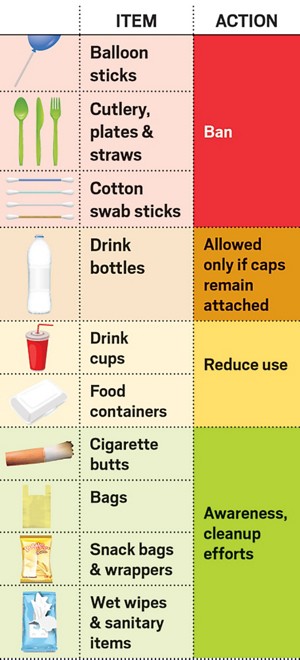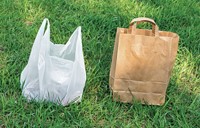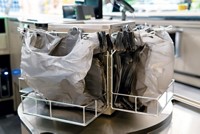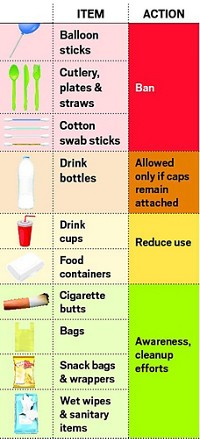Advertisement
Grab your lab coat. Let's get started
Welcome!
Welcome!
Create an account below to get 6 C&EN articles per month, receive newsletters and more - all free.
It seems this is your first time logging in online. Please enter the following information to continue.
As an ACS member you automatically get access to this site. All we need is few more details to create your reading experience.
Not you? Sign in with a different account.
Not you? Sign in with a different account.
ERROR 1
ERROR 1
ERROR 2
ERROR 2
ERROR 2
ERROR 2
ERROR 2
Password and Confirm password must match.
If you have an ACS member number, please enter it here so we can link this account to your membership. (optional)
ERROR 2
ACS values your privacy. By submitting your information, you are gaining access to C&EN and subscribing to our weekly newsletter. We use the information you provide to make your reading experience better, and we will never sell your data to third party members.
Pollution
Europe to ban some single-use plastics
New obligations for industry as the region and other areas target the causes of marine litter
by Alex Scott and Alex Tullo
May 31, 2018
| A version of this story appeared in
Volume 96, Issue 23

The European Commission has proposed a new law that bans or restricts the 10 single-use plastic products most often found on Europe’s beaches and in its seas. The move comes amid efforts by the U.K. and by U.S. jurisdictions such as California to also limit single-use plastics.

An EU proposal would ban or limit single-use plastics in a bid to reduce pollution.
Source: European Commission
The products on the EU’s ban list include cotton swab shafts, cutlery, plates, straws, drinks stirrers, and sticks for balloons. They will need to be made with more sustainable materials. Single-use plastic drink containers will be allowed only if their caps remain attached. Other products are subject to awareness-raising and cleanup measures. Together with fishing gear, the products targeted constitute 70% of all marine litter, the EC says.
Under the law, plastics producers will be obliged to help cover the cost of waste management and cleanup and to promote litter awareness. Producers of fishing gear, for example, will be required to pay for the collection and treatment of waste gathered by port authorities. The EC says it will provide industry with incentives to develop less-polluting alternatives.
“Europeans need to act together to tackle this problem, because plastic waste ends up in our air, our soil, our oceans and in our food,” says Frans Timmermans, the EC’s first vice president responsible for sustainable development. The EC is pushing to approve the measures by May 2019.
PlasticsEurope, Europe’s leading plastics industry association, hit back at the proposal. “Plastic product bans are not the solution,” it says. The association is urging the EC “not to take shortcuts” and warns that alternatives to plastics may not be more sustainable. Rather than plastics, PlasticsEurope blames the problem on a lack of waste management infrastructure and “inappropriate littering behavior.”
But the proposed legislation was welcomed by environmental organizations, including the European Environment Bureau, a network of groups. “There is no reason why we shouldn’t ban unnecessary single-use plastic items when durable and toxic-free alternatives already exist,” says Stéphane Arditi, the group’s products and waste policy manager.
Biobased plastics producers could benefit from the proposed law. “Bioplastics can offer sustainable and safe alternatives for some of these identified products,” says François de Bie, chair of European Bioplastics, an industry association. However, the proposed law remains vague regarding the use of alternatives, he says.
The move to control plastic litter follows the January unveiling of the first Europe-wide strategy for managing the region’s growing plastic waste problem. It stipulates that all plastic packaging must be recyclable by 2030. Since then countries around the world have announced plastic recycling overhauls and new laws.
In the U.S., prohibitions on plastics have been rolled out on the state and local, rather than the federal, levels, with California generally leading the way. Following a referendum, the state banned plastic shopping bags in 2016. Laws introduced in the state’s legislature would ban restaurants from providing drinking straws except by customer request, require beverage container caps to be tethered, and require labels on clothing made mostly from synthetic fibers to warn that they shed microfibers when washed.
Advertisement
New York City has made on-again, off-again attempts to ban plastic bags and polystyrene foam containers. Last week, the city council introduced a bill to ban plastic straws and stirrers.





Join the conversation
Contact the reporter
Submit a Letter to the Editor for publication
Engage with us on Twitter